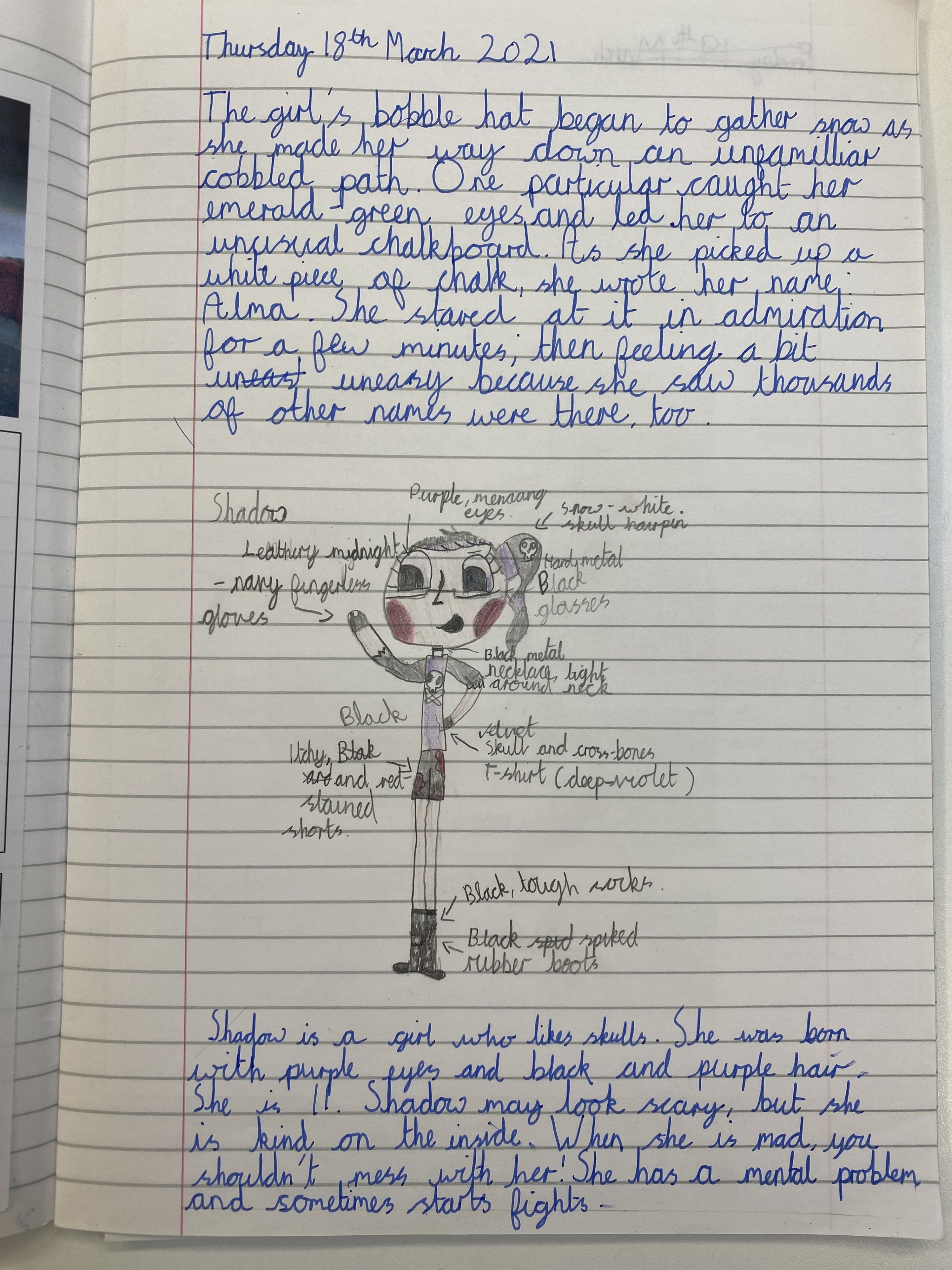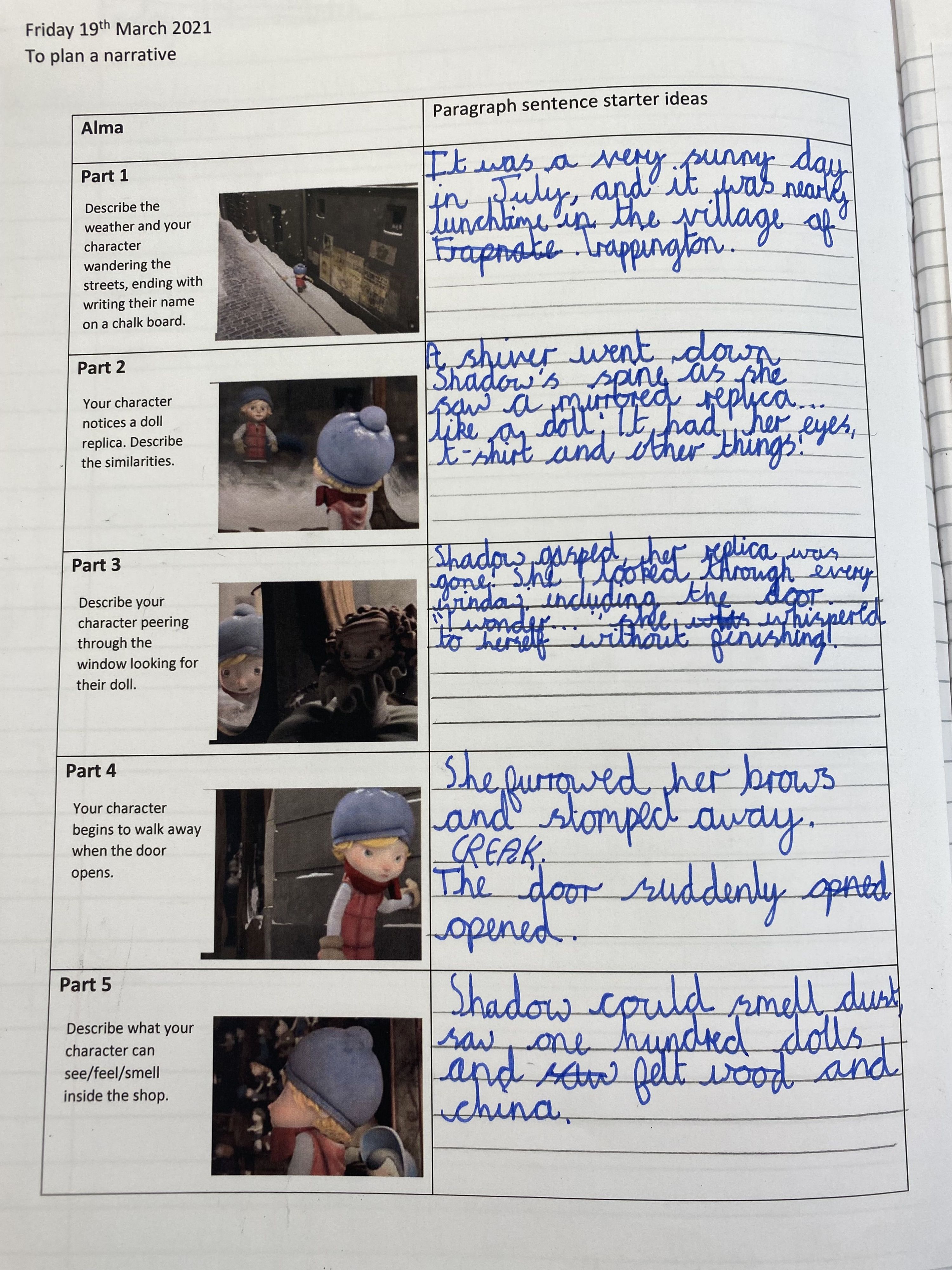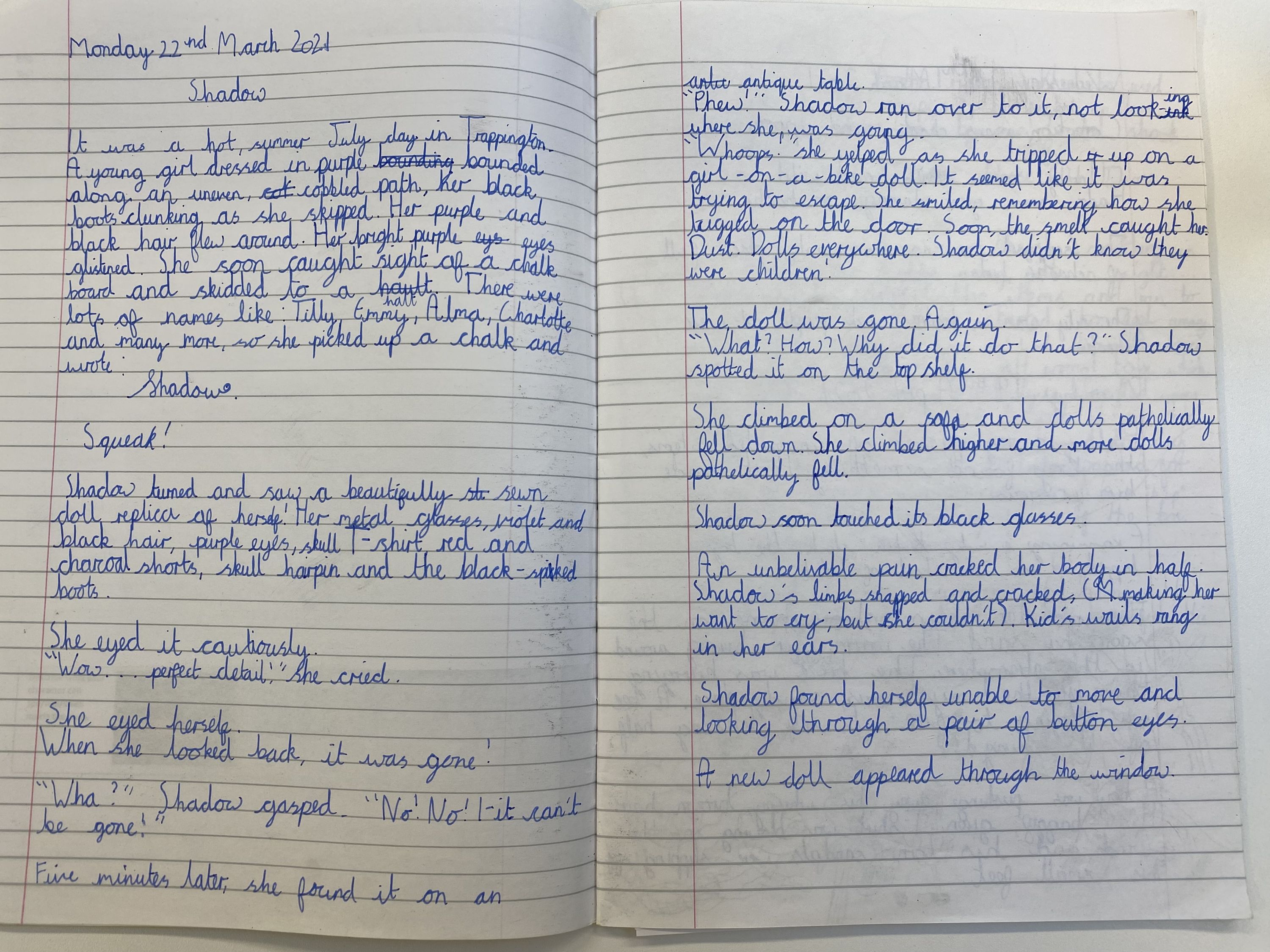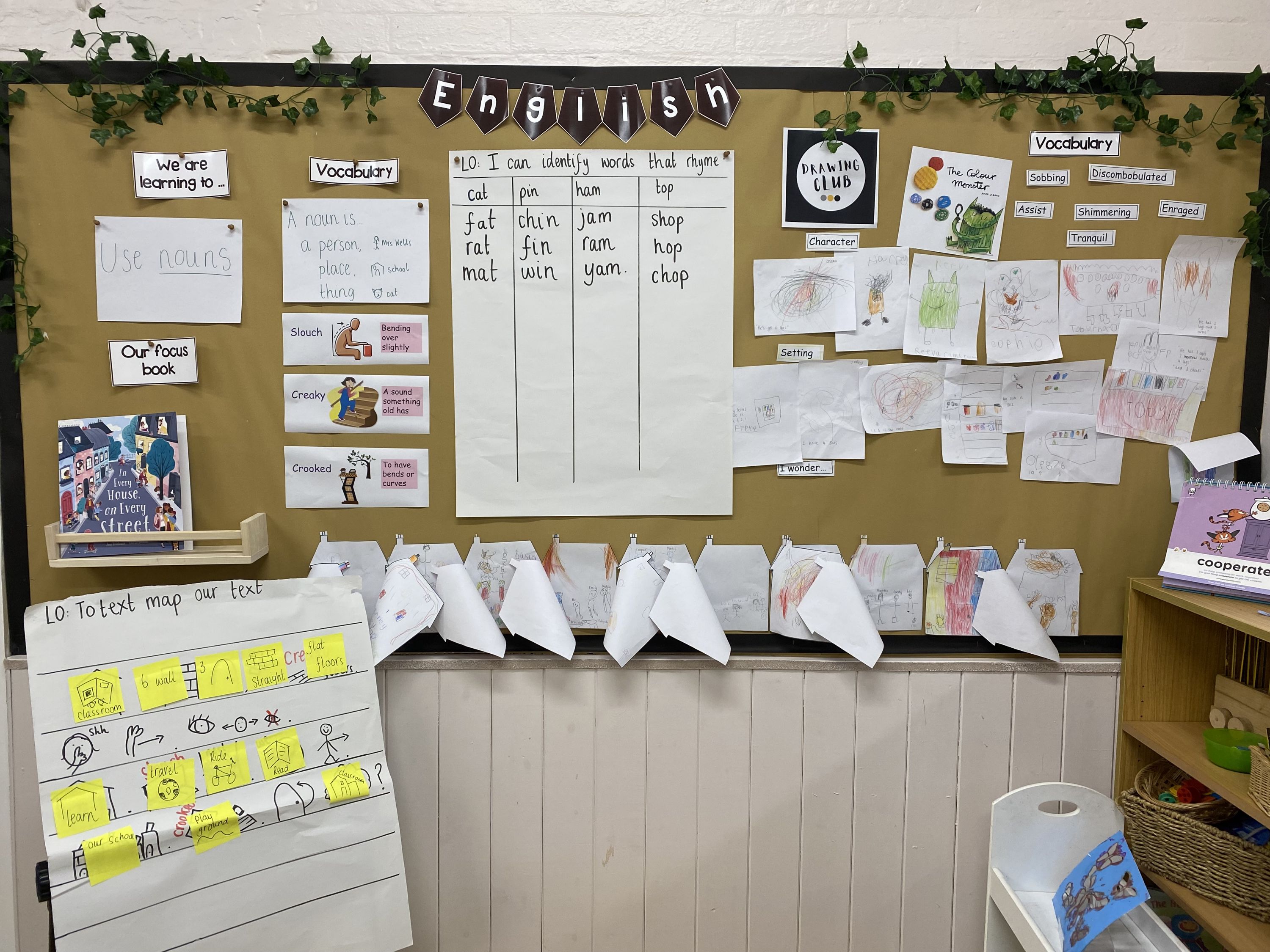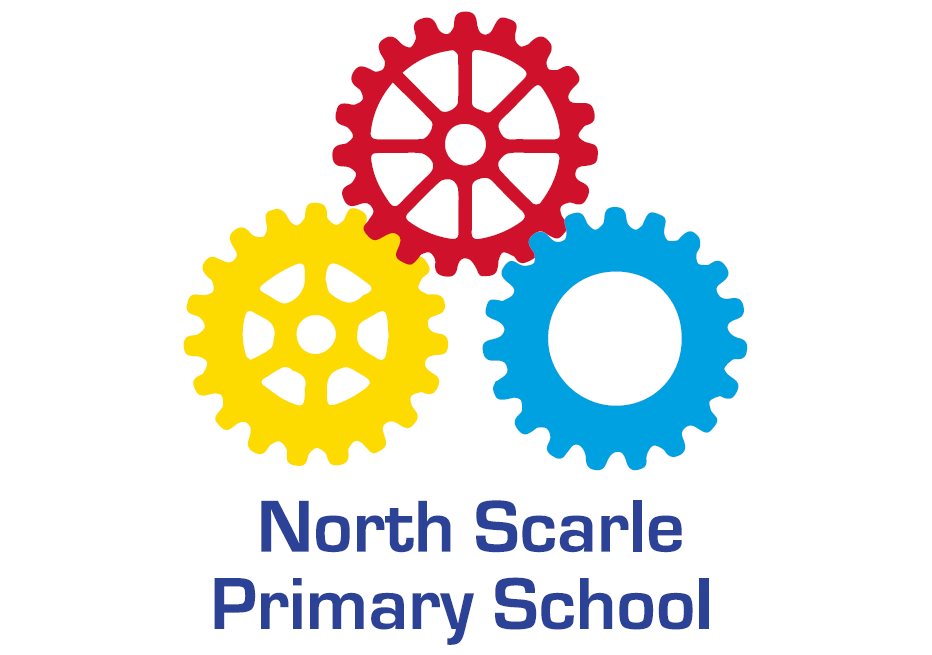Writing
Writing at North Scarle Primary School
At North Scarle Primary, the teaching of English is the foundation of our curriculum. Our main aim is to ensure that all children become competent in all aspects of literacy. English is taught in a daily discrete lesson for all pupils; however the teaching and development of writing skills is also embedded in other areas of the curriculum. By the time pupils leave school, they will be expected to write clearly, accurately and coherently, for a variety of purposes and audiences, adapting their language and style as required. Both transcription skills and composition skills are equally important and are taught effectively in a creative and engaging way. Children will be expected to take pride in their writing and present their work to a high standard.
Inclusivity: It is our belief that all children in our school can become competent in literacy. Our writing curriculum is designed so that all children can experience success, and adaptations or catch-up interventions are put in place for children who may need it.
Enriched: Alongside our carefully designed writing lessons, children have the opportunity to take part writing competitions, have visits from authors and even see their writing published in books!
Aspirational: Our consistently high expectations ensure that all children are able to achieve and become fluent in all aspects of literacy. Our older children know what good writing looks like and aspire to compose high quality pieces of writing that persuade, entertain, inform or discuss a range of topics.
Inspirational: Our inspiring writing curriculum allows learners to engage with a variety of high-quality fiction, poetry and non-fiction texts, as well as short films and adverts. Children often have the opportunity to publish their final drafts and see their writing displayed around school.
How is writing taught at North Scarle?
Our writing curriculum is based upon the National Curriculum requirements. The long term plan structures the objectives around units which combine the reading of high quality texts with specific grammar teaching and opportunities for crafting pieces of writing. These units cover both narrative and non-narrative writing. Each unit is coherently planned and sequenced, leading to a final written outcome. Pupils will have the opportunity to plan, draft, revise, edit and publish their writing.
In writing, substantive knowledge is the ability to plan, draft, and construct writing for different purposes. This involves knowledge of structural, grammatical and linguistic features as well as knowledge of handwriting and spellings. Through regular practice, this substantive knowledge becomes automatic and fluent, leading to mastery. In writing, disciplinary knowledge is the ability to evaluate and edit text and apply substantive knowledge to write effectively for a range of purposes.
To be successful writers, pupils need to master transcriptional skills quickly. For our Little Learners, we provide opportunities that target the development of fine motor skills within the learning environment, as well as whole class activities such as ‘dough disco’. Handwriting, letter formation and spelling are initially taught daily through the Read Write Inc programme. In addition to RWI phonics, all children participating in the RWI programme are taught sentence structure, grammar and spelling in daily Get Writing lessons.
Writing lessons are meticulously planned for each class and follow a 2-year cycle in class 2, and a 3-year cycle in Class 3. Our units cover grammar, sentence construction, vocabulary and composition. Pupils complete around 3 units of work each half term, covering poetry, narrative writing and non-narrative writing. At the heart of each unit will be core texts, linking pupils’ reading and writing and providing aspirational models for writing. Specific grammar instruction takes place daily, using the Active English programme in Class 2. Both spelling sessions and handwriting practice are timetabled weekly for all pupils. Pupils’ writing is assessed regularly against specific year group criteria, allowing teachers to plan the appropriate next steps.
